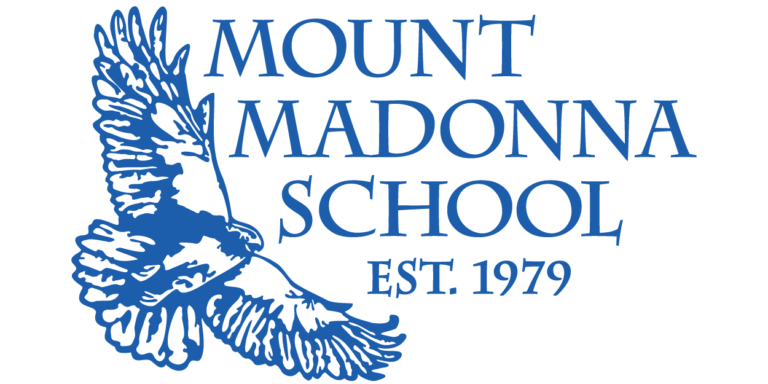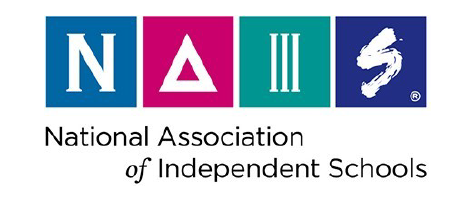 This fall the freshmen and sophomore English classes participated in the Yes! Magazine Writing Competition, a national writing competition with roughly 2,000 participants each quarter. Last year Mara Peruzzi received an award in the Powerful Voice category and Imogen Cockrum was the winner of the overall High School category. Both students later received Mayor’s Certificates of Recognition for their accomplishments.
This fall the freshmen and sophomore English classes participated in the Yes! Magazine Writing Competition, a national writing competition with roughly 2,000 participants each quarter. Last year Mara Peruzzi received an award in the Powerful Voice category and Imogen Cockrum was the winner of the overall High School category. Both students later received Mayor’s Certificates of Recognition for their accomplishments.
This year the freshmen and sophomores responded to the prompt:
Think about someone in your school or community who is vulnerable and may need protection or support. This person may be a neighbor or a classmate—it may even be you. Are you willing and brave enough to stand up against injustice? Describe what you would do, and how your actions might make a difference.
Three essays from each class were then chosen for submission to the competition:
- English 9 – Nadia Rassech, Augustus Bracher, and Morgan Westbrook
- English 10 – Fiona Burgess, Tabitha Hardin-Zollo, and Paola Jacobs
The results are in! Morgan was a Powerful Voice semi-finalist in the high school category, and Nadia was one of six Powerful Voice finalists in the high school category. Also, excerpts from Morgan and Fiona’s essays were chosen for publication as Literary Gems.
Below are excerpts from the six essays that were chosen to participate in the competition.
Augustus Bracher wrote about Social Anxiety Disorder and how theater, as a participant and fan, has offered both an escape and a deepened understanding of the realities of this often-misconstrued condition.
“Rejection. That’s the real meat of the issue. The fear of being rejected for who you are, that you open yourself up, and you show everyone who you really are, and they don’t like it. Reading too deep into everything everyone does, finding little things that are innocuous to them and to everyone else, but there’s that spark of doubt that’s telling you, “Did you pick up that twitch, that awkward smile, that glance away? They don’t want to listen to you, to be near you. Who would?” … Something that hits the nail on the head is the Broadway musical Dear Evan Hansen. This play is the story of a teen with SAD lying to fit in, until he gets too deep in his lies and comes clean. The way Evan behaves fits the symptoms perfectly. He’s in his head a lot, and has vivid daydreams. He can’t force himself to talk to others. He can’t put the thoughts that go so perfectly in his head into words, but he needs other people to thrive.”
Nadia Rassech, one of six Powerful Voice finalists in the high school category, wrote about her early exposure to the judgment and harassment faced by the LGBTQ+ community and how she found her voice to stand up for what is right.
“It was that day I realized it was real. Discrimination, hate, injustice and inequality. Even if they were just a few little kids, it was from that conversation I realized why they were never allowed to come over to my house for a playdate, or why their parents didn’t seem to get along with mine.
When my father later comforted me in his car and handed me another tissue, I realized my mistake. I shouldn’t have shied away from telling the truth about my parents. I shouldn’t have felt ashamed about my fathers’ love for each other.
I should have stood up for myself.
‘Nidoto nai yoni’ is the phrase. Nidoto nai yoni. Let it not happen again. Never let it happen again.
And I won’t, because I made a promise to my eight-year-old-self.
My hope is that I will never allow people to make me feel ashamed of myself or my parents again, and I won’t let other people feel ashamed either.
I will speak up whenever I witness an injustice. I will fight against the harassment, mistreatment, and intolerance of the LGBTQ+ community. Because I’ve always had a voice, and now, I’m proud enough to use it.”
Morgan Westbrook was a Powerful Voice semi-finalist in the high school category and an excerpt of his essay was chosen for publication as a Literary Gem. He wrote about racial stereotyping and his personal experiences coming from an interracial family.
“Being a darker skinned American is like being a peanut in a bag of trail mix. By most people, you are ignored unless you are freakishly huge or broken; by others, you are considered inferior, a worthless filler to an otherwise perfect bag of raisins and M&Ms. And the last type of people are the ones who seem to like you more than all the other things in the trail mix. No colored person likes the third type of person because we like to be treated like normal people.
I am the oldest of three; both of my sisters look white. My mom and dad are interracial. My dad is Irish and African American, but he looks black. My mom is English, Native American and African American, and she looks white with a mild tan. I am the only child of Paul and Jessica Westbrook who has dark skin. At home, my mom and dad explain the facts of racial injustice and I can witness them anytime my dad and I walk into a store that sells anything worth stealing.”
An excerpt of Fiona Burgess’ essay was chosen for publication as a Literary Gem. Fiona wrote about the insecurity and fear inspired by the objectification of women.
“How do we explain this injustice? Looking back in history, women have always been pushed aside and deemed incapable. In the U.S., it wasn’t until recently that women legally had the same rights as men. Women needed their father’s or husband’s permission for bank accounts, education, work, and birth control. Men refer to their cars and boats with a female pronoun, making things they own female. So maybe this is part of why many men, strangers on the street, have felt this ownership of women’s bodies leading to this gross justification to follow, touch and call at women and girls. However, understanding the roots of the problem still doesn’t make any of it okay. Women deserve the same freedom of movement as men. We should be able to walk home safely even in our shorts. When will the fear go away and when will people realize that women are not objects up for grabs?”
Tabitha Hardin-Zollo wrote about the barbaric cruelty of factory farming and how her family has helped to rescue and advocate for animals.
“When I hear mother cows moaning for their stolen babies, when I see chickens crammed into cages, their beaks cut off and no room to open their wings, when I remember the countless sows spending their lives confined, breeding and birthing, I see injustices. When a human being intentionally inflicts suffering and pain on another living, feeling, innocent being, a being of any kind, it is wrong…. Everyone should see the food in front of them for what it once was, an intelligent, sentient creature, who didn’t deserve to be tortured for human desires. I want to raise awareness about the injustice that is animal cruelty in factory farms. I want to convince people that animals are not meant to be tortured for the sake of a tender piece of meat. I want people to understand that injustices apply to all living things, not just humans.”
Paola Jacobs wrote about finding the courage to stand up for herself in the face of racial profiling.
“I felt a sense of relief after standing up for myself. The staring stopped after that. She made me feel embarrassed of who I am; for once I didn’t feel comfortable in my own skin. Never do I want to feel this kind of humiliation again. If we’re strong enough to stand up for ourselves, perhaps people will rethink their judgments. Standing by, without speaking up, (can) lead to a terrible outcome. Let’s hope that in the future, we will have the courage to stand up for what is right.”
####
Contact: Leigh Ann Clifton, Director of Marketing & Communications,
Nestled among the redwoods on 355 acres, Mount Madonna School (MMS) is a community of learners dedicated to creative, intellectual, and ethical growth. MMS supports its students in becoming caring, self-aware, discerning and articulate individuals; and believe a fulfilling life includes personal accomplishments, meaningful relationships and service to society. The CAIS and WASC accredited program emphasizes academic excellence, creative self-expression and positive character development. Located on Summit Road between Gilroy and Watsonville. Founded in 1979.




